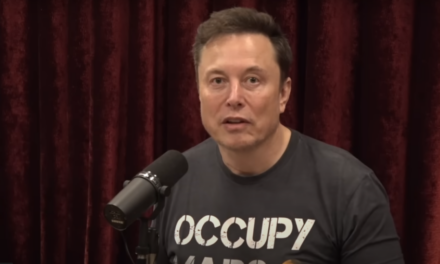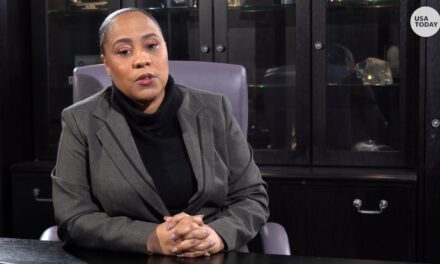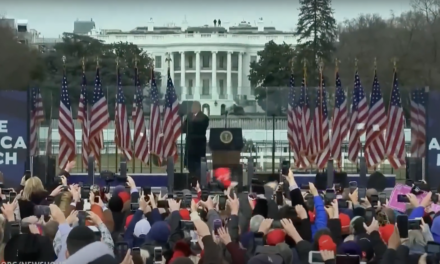We support our Publishers and Content Creators. You can view this story on their website by CLICKING HERE.
Jury deliberations will resume Monday in the case against Daniel Penny all because city prosecutors are using dubious legal maneuvers to keep Penny’s case alive — and the judge is going along with it.
Penny is on trial for protecting passengers on a New York City subway in May 2023 when a belligerent, out-of-control thug, Jordan Neely, taunted passengers that he was “prepared to go to jail for life” and was “willing to die.” Neely also said “I’m going to kill you.” Penny he subdued Neely to protect those on the train. One witness later reported that Penny saved her life.
Penny was charged with one count of second-degree manslaughter and a lesser charge of criminally negligent homicide.
On Friday, jurors informed the court they could not reach a unanimous decision. Fox News legal contributor Andy McCarthy said Judge Maxwell Wiley “should have declared a mistrial.” State law states that without a unanimous verdict a mistrial should be declared. Instead, Wiley gave the jurors an Allen Charge, which instructs jurors who are deadlocked to try and reach a unanimous decision.
McCarthy argues he believes anything other than a mistrial declaration would mean “browbeat[ing] the jury into a conviction.” Penny’s lawyers made a similar charge, arguing the charge was coercive, but jurors went back to deliberate. The jury once again came back and informed the court they could not reach a unanimous decision.
At this point, a mistrial should have been declared. But prosecutors dropped the manslaughter charge against Penny in order to attempt to secure a conviction on the second charge.
The original jury instructions said that should the jury find Penny guilty of manslaughter in the second degree, then they should not consider the second charge. The instructions added: “If you find the defendant not guilty of [manslaughter in the second degree],for the reason that the People have failed to prove beyond a reasonable doubt that the defendant was not justified, then, you must not consider count 2, criminally negligent homicide, and you must also find the defendant not guilty of that count.” Jurors were further instructed to consider the second charge if they found Penny not guilty on count 1 “for some reason other than the lack of justification.”
In short, nothing in the jury instructions indicates the jury should move to deliberations on Count 2 if the jury could not agree on a unanimous verdict on the first count.
But this is where the legal gymnastics come in. The prosecution, perhaps seeing that a mistrial was to be declared and that they would have no conviction on either count, asked the court to dismiss the manslaughter charge. It’s a dubious legal maneuver that sidesteps criminal procedure because it would permit the jury to consider the second charge even though the original jury instructions did not instruct jurors to consider the second charge if they could not reach a verdict on the first.
Even Wiley expressed doubt about whether the tactic was “consistent with NYS law,” according to Matthew Russell Lee of the Inner City Press. Penny’s lawyers argued such a decision would “encourage prosecutors to over-charge in the grand jury, with the option of withdrawing if hung, under coercion” and that going along with the request could compromise the verdict. A compromised verdict is when jurors agree on a verdict — despite their true beliefs — to avoid a mistrial.
“The law is clear that compromised verdicts are to be avoided,” Penny’s lawyer Thomas Kenniff told the court, according to the New York Post. “I am not aware of any case where this has been permitted.”
Wiley acknowledged, according to the New York Post, that “the defense has correctly stated what the law is but the DA’s proposal would eliminate the issue that you are citing.”
But Wiley said he was willing to “take a chance” and let the jury consider the second count.
When Assistant District Attorney Dafna Yoran offered Assistant District Attorney Steven Yu to explain their position, Wiley reportedly told them is wouldn’t be necessary and that dismissing the manslaughter count would resolve the issue.
When Wiley expressed trepidation over what he would tell the jury, Yoran told him to tell the jury “only that it’s dismissed” and not that it is an acquittal, according to Lee.
Now, with Penny’s future on the line, a judge is willing to “take a chance” on a legal maneuver that only benefits the prosecution. If this blatant manipulation of the legal process stands, it could set a dangerous precedent for future cases, allowing prosecutors to railroad defendants in pursuit of a conviction at all costs.
Brianna Lyman is an elections correspondent at The Federalist. Brianna graduated from Fordham University with a degree in International Political Economy. Her work has been featured on Newsmax, Fox News, Fox Business and RealClearPolitics. Follow Brianna on X: @briannalyman2

 Conservative
Conservative  Search
Search Trending
Trending Current News
Current News 





